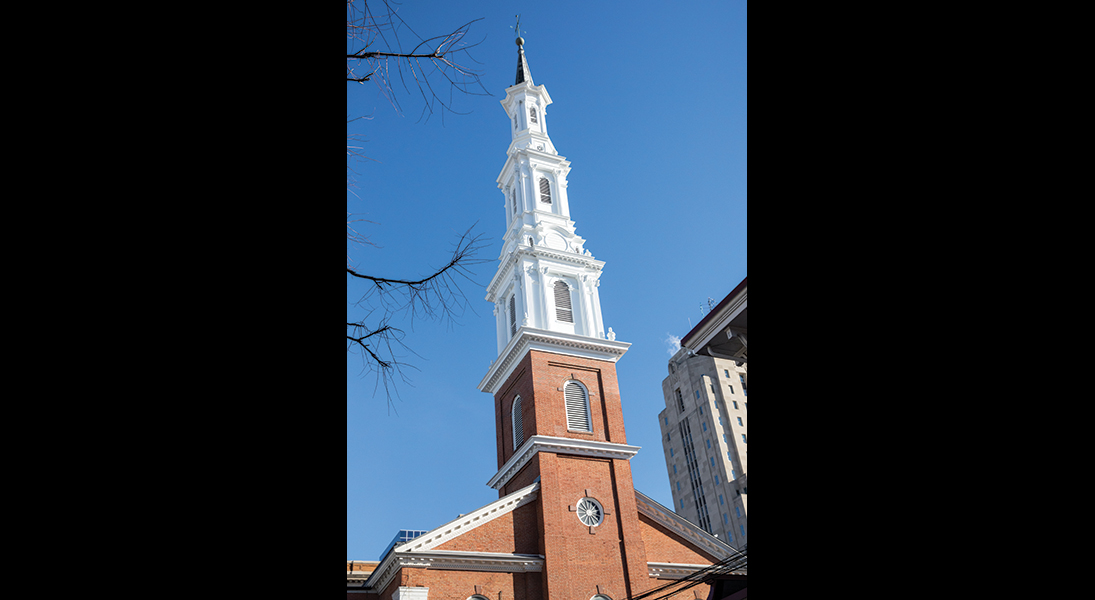I grew up wanting to be a pastor because my faith was nurtured by a loving congregation and I was mentored by a pastor who took an interest in me. Like many people who become pastors, the journey took a little longer than expected and the path wasn’t as straight as I had imagined. As a young person, I simply thought of myself as a follower of Jesus. It didn’t seem that complicated. But I learned early on that if I was serious about becoming a pastor, I would need to go to seminary.
I suspect that for many people there is a certain mystique surrounding seminaries because, while they are a particular kind of graduate school where academic learning occurs, they are also concerned with spiritual formation. In this respect, seminaries are different from other graduate schools. Although they are primarily regarded as graduate schools that prepare pastors who will lead congregations, the truth is that people go to seminaries for a variety of reasons.
The phrase “faith seeking understanding,” coined by Anselm of Canterbury in the 11th century, may be a useful way of thinking about the reasons people go to seminary. Seminaries are institutions of higher learning where people go to cultivate and explore the resources of their faith and to discern what God is calling them to be and to do in the world.
Not everyone who attends one of the seven ELCA seminaries will become a pastor, but the majority are preparing for some form of ministry. Although most Lutheran seminarians are working on the Master of Divinity degree required to be a pastor, others will use this education to live out their faith in different vocations. More people are discerning a call to serve as deacons, whose role is to connect the church with the needs of the world and work to equip others to lead an active and caring Christian life.
What all seminaries have in common is that they are in the business of forming leaders of faith for the church and for the world.
A lot has changed in theological education in the past decade or so. Until fairly recently, seminaries taught essentially the same curriculum based on a model developed in the early 19th century. This included courses in theology, Bible, church history and various aspects of the practice of ministry. This approach assumed the vitality of congregations. Just as church attendance has declined steadily in recent years, seminary enrollment has decreased by 50 percent. In the wake of this dramatic shift, seminaries have sought to respond by adapting their approach to theological education and spiritual formation to developing leaders capable of navigating a rapidly changing world.
Seminaries are asking questions about what kind of leaders the church and the world need. They are approaching leadership and faith formation in different ways based on how they respond to that question in light of their theological commitments and their understanding of the church’s mission.
There have been two basic kinds of modifications in theological education. The most significant change has been the growth of distributed learning models. While online courses have been around for a long time, at some ELCA seminaries students can complete their education by taking courses online and coming to campus a couple times a year for intensive classes. This has made seminary more accessible and affordable because students don’t have to move. They can continue to work while they go to school part time. Some of these models allow students to be involved in ministry contexts while attending seminary.
The other major shift in theological education has been to rethink the content and approach to what is taught. No seminary has abandoned the commitment to core areas such as Bible, theology and the basic arts of ministry. But many are also offering courses in various practical skills, such as leadership and community organizing, and are interested in innovative approaches to ministry and emerging models of church.
The future of theological education is inextricably linked to the future of the church, and vice versa. Seminaries are asking questions about what kind of leaders the church and the world need. They are approaching leadership and faith formation in different ways based on how they respond to that question in light of their theological commitments and their understanding of the church’s mission.
As the world becomes more pluralistic and more complex, ministry will take new forms. These are challenging times in which we are living—somewhere between what the church has been and what it will be—but the Spirit’s creative and redeeming activity is at work in the world. All ELCA seminaries are committed to developing leaders capable of bearing witness to the good news of God’s love in Jesus Christ even as we seek new ways to communicate and embody that message in public spaces.








